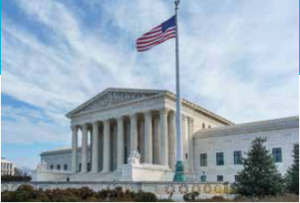
Photo: Insta_Photos; Erik Cox Photography/Shutterstock.com
On Dec. 10, the Supreme Court of the United States of America (SCOTUS) issued a landmark decision in Rutledge, Attorney General of Arkansas, v. Pharmaceutical Care Management Association. In an 8–0 decision, the justices agreed that states have the right to impose regulations on pharmacy benefit managers (PBMs), companies that manage prescription drug benefits on behalf of health insurers, Medicare Part D drug plans, large employers and other payers. Justice Amy Coney Barrett took no part in the consideration or decision of this case.
The ACR and the Alliance for Transparent and Affordable Prescriptions (ATAP), a coalition of patient and provider groups, have long argued that too few restrictions have been placed on PBM transparency and requirements for PBMs to pass negotiated savings on to payers and patients are needed. This decision from SCOTUS sets the stage for states to impose further regulations to ensure patients and providers have necessary protections and the profit motives of PBMs are clear to all.
The ACR has played an active role in these issues in Arkansas and other states as the states crafted new regulations involving PBMs. The ACR and its partners in the ATAP coalition also filed an amicus brief in the Rutledge case arguing in part that PBMs are engaged in abusive practices with serious practical and policy consequences, including upward pressure on prescription drug pricing.
“The Supreme Court is now amplifying the light we are shining on the previously hidden profit motives of the PBM industry,” said Angus Worthing, MD, a practicing rheumatologist with Arthritis & Rheumatism Associates PC, Washington, D.C., a clinical assistant professor of medicine at Georgetown University, and past chair of the ACR’s Government Affairs Committee. “With this decision and other actions in Washington and various states, patients, physicians and policy makers now have the power to effect meaningful change.”


